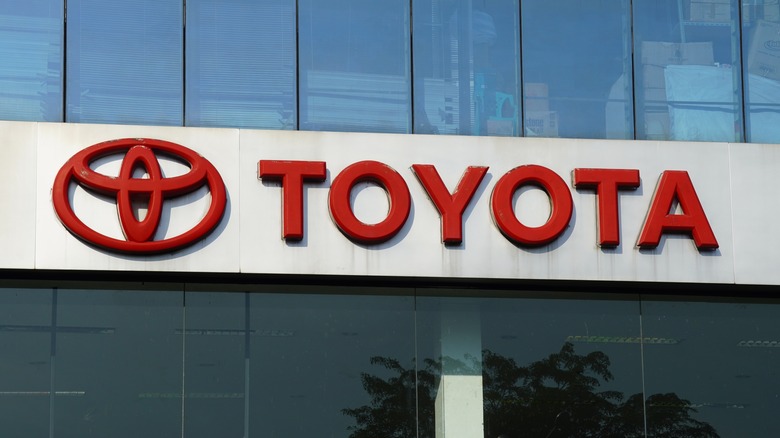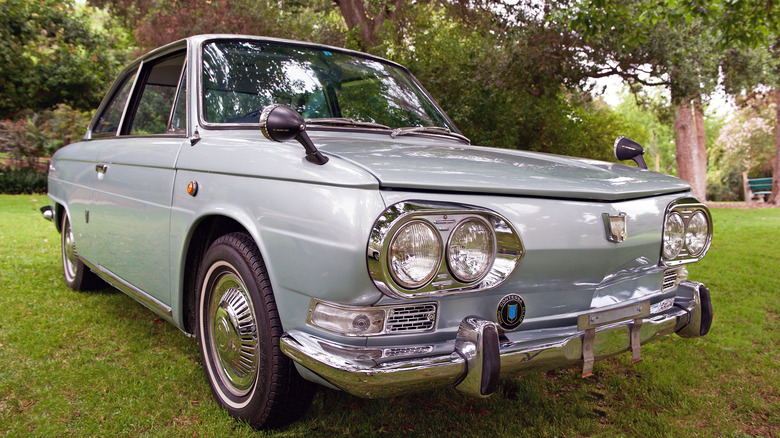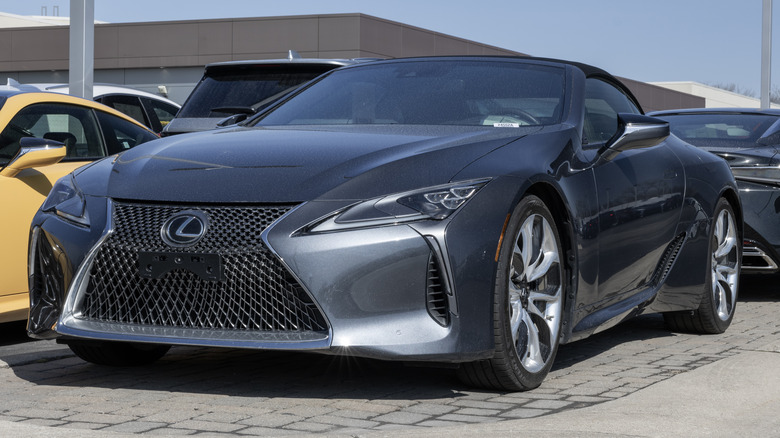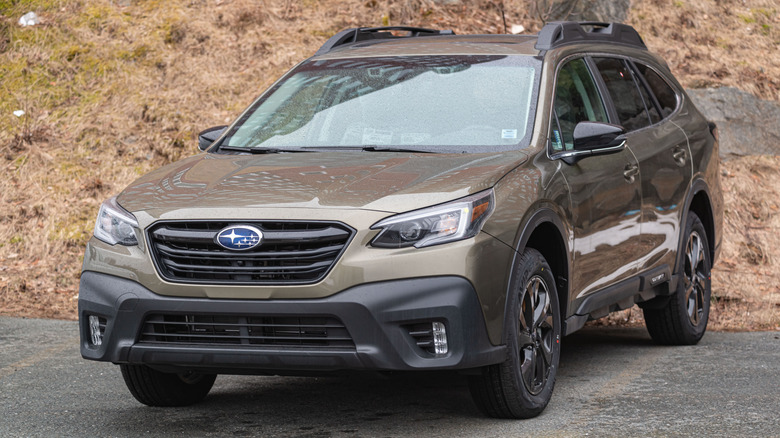Every Car Brand Toyota Owns In 2024
The Toyota Motor Company came into being way back in 1937, and grew at an impressive rate throughout the remainder of the 20th century, expanding into a variety of markets, with several of its numerous endeavors flying under the average person's radar. For instance, Toyota Marine has brought the company's technological and mechanical expertise to the water, and the Toyota Robotics division creates a vast array of machines that help users move through physical and virtual space. Still, Toyota's biggest and most widely-known output is its long-running line of automotive vehicles.
With the creation of the Toyoda Model AA passenger car in 1936, the soon-to-be-founded Toyota was on its path to automobile supremacy. Almost 100 years after its first vehicle was designed, the company has earned its place as the largest car manufacturer in the world. As such, the company now offers a range of different models, and Toyota vehicles have become synonymous with reliability for several reasons. Even more impressive is the fact that Toyota now offers models from multiple brands aside from its own.
These are all of the car brands Toyota Motor Company owns in 2024 and how they wound up under the company umbrella.
Daihatsu
Daihatsu is a historic Japanese automaker that came into being officially in 1951, formerly being known as Hatsudoki Seizo Co., Ltd. in the early 1900s. The company gained traction for its proficiency in kei cars and kei trucks — America's surprisingly popular auto enthusiast trend — which are small, yet still street legal, vehicles, but it has released several full-sized SUVs and vans over the years. In the 2020s, it operates largely in Japan, Indonesia, and Malaysia and has done so as one of Toyota's subsidiaries for the past few years.
The connection between Daihatsu and Toyota dates back to the 1960s, when the two came together in 1967 to collaborate and Toyota purchased stakes in the company. Fast forward a few decades to the 1990s, and Toyota decided to increase its holdings in the company. Its stake jumped to 33.4% in 1995, with it turning Daihatsu into a subsidiary in 1998, when that number increased to a majority of 51.2%. In a landmark move in 2016, Toyota purchased all remaining stock in Daihatsu to become its sole owner, remaining as such as of the time of writing.
Hino
When one thinks of Hino Motors, understandably, its offerings in the passenger vehicle department aren't likely to spring to mind immediately. Since its official founding in 1942, it has become a standout almost exclusively in the realm of commercial trucks, diesel engines, and mass transportation, making great strides in the areas of shipping and busing throughout the late 1940s onward. The Hino Renault 4CV and Hino Contessa are its most well-known passenger vehicles, though it hasn't focused on such efforts in decades — especially not since it became a part of Toyota.
The story of Hino becoming a piece of the Toyota puzzle actually starts at the same time Daihatsu's history with the brand began. In the mid-1960s, Hino and Toyota entered a working relationship, with the year 2001 seeing Toyota purchase a majority stake in the company and make it a subsidiary. Over two decades later, in 2023, it was announced that Hino and Toyota will take part in a merger deal with Daimler Truck Holding AG and Mitsubishi Fuso Truck and Bus Corporation to collaborate on various technological and environmental goals. Once it reaches completion, Hino will no longer be a subsidiary of Toyota. As of late 2024, the merger is still being ironed out.
Lexus
The Lexus brand was established in the late 1980s and has since become one of the premier names in the luxury car game. It has been responsible for multiple tremendous models, and has provided drivers with some immensely fast Lexus cars as well. In doing so, Lexus has grown into a global juggernaut, with an array of vehicles readily available in over 90 countries around the world. As it has become such a mainstay in the luxury car market, it has done it all while classified as one of Toyota's subsidiaries.
Yes, unlike Toyota's other owned brands, Lexus wasn't acquired. Rather, it was born under the Toyota banner. In 1983, then-Toyota chairman Eiji Toyoda held a secret meeting to discuss the matter of breaking into the luxury vehicle market. What followed was a years-long process of research and design that culminated in the debut of the ever-popular Lexus LS. Its first year of sales, 1990, saw sales expectations surpassed by thousands as roughly 60,000 units sold. Lexus was here to stay, and knee-deep in the 2020s, it remains as a key element of Toyota's enduring prosperity.
Brands Toyota is connected to, but doesn't own
Evidently, there's a lot more going on at Toyota than one might think. A luxury car brand in Lexus, a bus and commercial transportation specialist in Hino, and a kei car favorite in Daihatsu is a lot to manage. Not to mention the fact that Toyota still very much does its own thing in the automotive sphere and beyond. But the company's involvement in other car manufacturers doesn't end here. While Toyota owns or has a majority share in Lexus, Hino, and Daihatsu, there are also a few brands in which Toyota has a minority stake. The reasons for this collaboration range from the exchange of resources and emerging technology to mutually beneficial manufacturing expansion.
The brand that Toyota is most heavily involved in without owning is Subaru. Back in 2019, Toyota increased its stock ownership from 16.9% to 20%, though it reassured everyone that it had no immediate plans to turn Subaru into a subsidiary. Meanwhile, Toyota also owns a 5.1% stake in Mazda — which in turn owns a 0.25% stake in Toyota — in addition to 4.94% in Suzuki and 4.6% in Isuzu. Suzuki owns 0.2% of Toyota. While these stakes are low now, time will tell if Toyota elects to increase their holdings down the line, potentially adding one or more of these brands to its already expansive portfolio.




